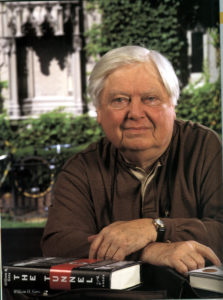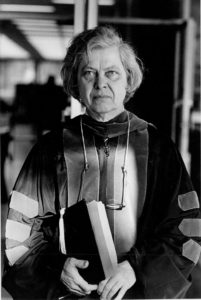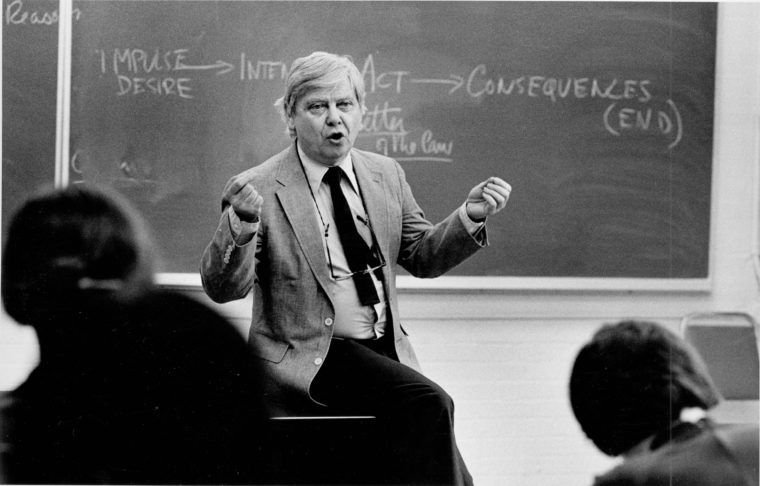“The true alchemists do not change lead into gold; they change the world into words.” ― William H. Gass, from “A Temple of Texts”
William H. Gass, the David May Distinguished University Professor Emeritus in the Humanities at Washington University in St. Louis, died Wednesday, Dec. 6, 2017, at his home in University City, Mo. He was 93.
One of the most acclaimed and influential writers of his generation, Gass was author of the novels “Omensetter’s Luck” (1966), “The Tunnel” (1995) and “Middle C” (2013), as well as the novella “Willie Master’s Lonesome Wife” (1968) and the story collections “In the Heart of the Heart of the Country and Other Stories” (1968), “Cartesian Sonata” (1998) and “Eyes” (2015).

In his 1970 essay “Philosophy and the Form of Fiction,” Gass coined the term “metafiction” to refer to works of imagination that self-consciously reflect their status as such.
“There are metatheorems in mathematics and logic, ethics has its linguistic oversoul, everywhere lingos to converse about lingos are being contrived, and the case is no different in the novel,” Gass explained. For writers of metafiction, “the forms of fiction serve as the material upon which further forms can be imposed.”
Gass won the National Book Critics Circle Award an unprecedented three times, for the essay collections “Habitations of the Word” (1978), “Finding a Form” (1996) and “Tests of Time” (2003). Other books include “Fiction and the Figures of Life” (1971), “On Being Blue” (1976), “The World Within the Word” (1978), “Reading Rilke: Reflections on the Problems of Translation” (1999) and “Life Sentences” (2012). “The William Gass Reader” is forthcoming from Knopf.
“Bill’s excellence as a writer was only exceeded by the irreverence with which he undermined authority in a language that is as subversive as it is complicatedly clear, shimmering with great beauty and unexpected metaphors,” said Gerhild Williams, vice provost and Barbara Schaps Thomas and David M. Thomas Professor in the Humanities. “Authority was ever the target of his writing, whether openly denounced or quietly undermined in his words. Bill Gass never stopped challenging our ways of employing words and our intention in doing so! And his were always magnificently on target!”

Born in 1924 in Fargo, N.D., Gass served in the U.S. Navy from 1943-46. He earned a bachelor’s degree in philosophy in 1947 from Kenyon College in Gambier, Ohio, and a doctorate in philosophy in 1954 from Cornell University. He taught at Purdue University before joining Washington University’s philosophy department in Arts & Sciences in 1969.
In 1990, Gass founded the International Writers Center in Arts & Sciences — now known as the Center for the Humanities — and served as director until 2000. He received an honorary doctorate of humanities from Washington University in 2005. The William H. Gass Papers, which include manuscripts and proof material toward his books, are held by Washington University Libraries.
In 1997, Gass received the Lannan Foundation Lifetime Achievement Award for his fiction and essays. In 2000, he won the PEN/Nabokov Award for “Reading Rilke” and the PEN/Nabokov Lifetime Achievement Award. Among his other honors were four Pushcart Prizes and the American Academy of Arts and Letters Award for Fiction. His work was included in “Best American Short Stories” for 1959, 1961, 1962, 1968 and 1980, and “Best American Essays” for 1986, 1992, 1995, 1998 and 2000.
Gass is survived by his wife, Mary Henderson Gass, and their daughters, Catherine and Elizabeth; by three children from his first marriage, Richard, Robert, and Susan; and by five grandchildren and two great-grandchildren. A memorial service will be held at a later date.
